
Nujuum Hashi persevered and overcame cultural obstacles, and now she has become a person who has a name and honor in the art of Somalia, and she started her current career as an artist.
At seven years old, living in the capital city of Mogadishu, she began drawing on the ground. Her family didn’t have the security to get comfortable in one spot, as the common struggle in Somalia was even from a pessimistic standpoint between the 1990s and mid-2000s.
Basle Nujum generally tracked down the soil to draw on as they moved from one area to the next.
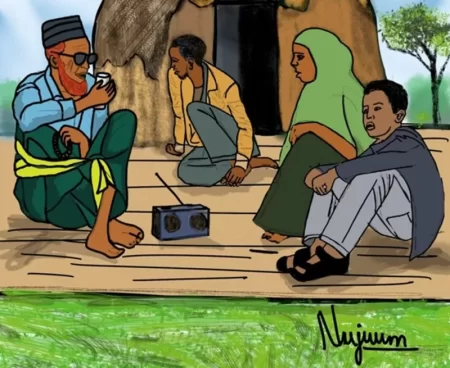
“Art has always been a form of relaxation for my mind,” Nujum said. “During intense wars, I calmed myself down with pictures of a normal, peaceful life.”
Art also helped her mind, even when the battles were cold. My Qur’an teacher was a very hot man. He used to beat us and I used to be scared of him. While I was walking home, I used to draw pictures in the sand to cheer him up and change my feelings.
“I used my pencil at school to draw a whole city on my bedroom wall.”
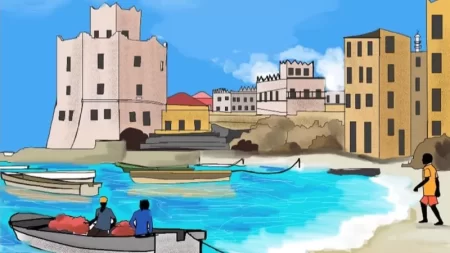
Nujuum never went to art school. My father was my teacher. He was not an artist, but he used to draw in his spare time. I asked him to teach me how to draw. But he passed away when I was very young. ”
Her mother did not support her ambition to become an artist. She also didn’t get support from her neighbors, who criticized her because her pictures are not allowed by Islam.
Most Muslims believe that pictures of people and animals are forbidden.
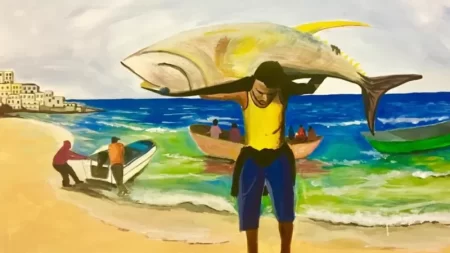
“They forced me to stop painting, so I gave up art altogether and studied nursing, but soon I got bored. One day I decided that I will never give up my art no matter what people say. see me.”
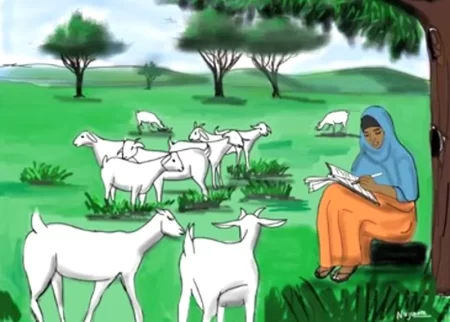
Now, Nujuum earns a good income from art and is able to financially support her family.
The 26-year-old Nujuum currently lives in Hargeisa, the capital of the self-proclaimed independent Republic of Somaliland, and receives contracts from various government departments, international organizations, and individuals. Somaliland’s Ministry of Education has asked them to present pictures of their advocacy for more girls to go to school.
“This girl is doing chores with her family’s goat. She has been walking to school for a long time. I wanted to show that girls can learn while doing their homework. ”
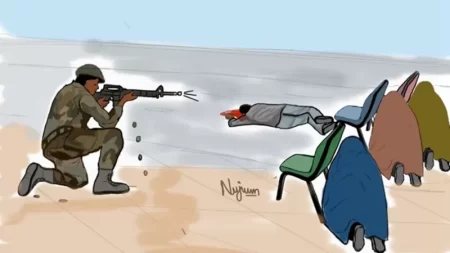
“The funeral of one of the people who died in the protests was attended by a minister without being invited. People were very angry about his participation. That caused a girl to kick him in the back.
“Now that girl is considered a hero of the opposition!”
While the Horn of Africa region is experiencing the worst drought in forty years, the Somali people are facing a huge humanitarian crisis.
“Politicians beg foreign countries to donate money to starving people,” she said. “Then they put it in their own pockets.”
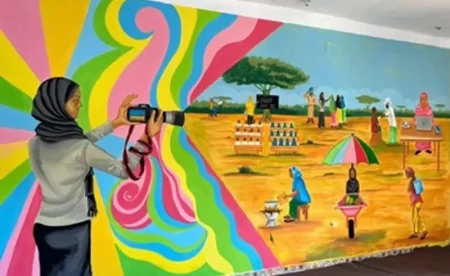
Drought and environmental degradation inspired her to make some of her paintings. This painting symbolizes the cracked dry land and the burning of precious plants to make charcoal.
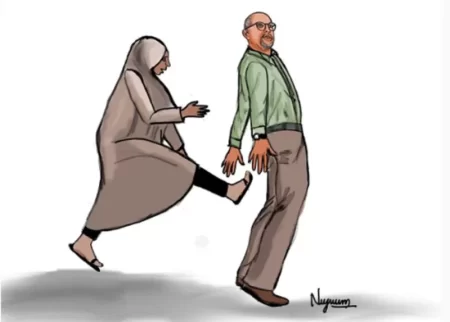
Many of Nujuum’s paintings depict people going about their daily activities. “This family is from the countryside and they are listening to the radio by the famous journalist of the Somali language branch of the BBC, Ahmed Hassan Cawke.”
Unfortunately, he has now passed away. People loved him, especially for his wonderful sweet voice. “


